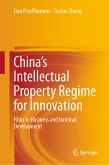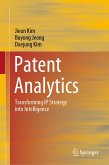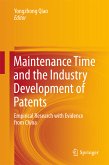This book argues that the current international intellectual property rights regime, led by the World Trade Organization (WTO), has evolved over the past three decades toward overemphasizing private interests and seriously hampering public interests in access to knowledge and innovation diffusion. While it is obvious that firm-level dynamics are changing toward networks and peer production in technologically leading companies in the developed countries, and toward increasing integration into global and regional production and innovation networks in developing countries academic discussions as well as policy disputes in the WTO and other international forums take place within a rather rigid and narrow perspective. This approach concentrates on tangible and codified knowledge creation and diffusion in research and development (R&D) that can be protected via patents and other intellectual property rules and regulations. In terms of global policy initiatives, however, it is becoming increasingly clear that the WTO in particular is mostly a conflict-resolution facility rather than a global governance body able to generate cooperation and steer international coordinated policy action. At the same time, rent extraction and profits streaming from legal hyperprotection have become pervasively important for firm strategies to compete in a globalized marketplace.
Taking into account these structural changes, the new frontiers that have to be faced by industrial, technological, innovation and competition policies, as well as increasingly complex coordination problems rising among them, a major cluster of policy and institutional design challenges emerges. To address them, a new conceptual framework is necessary. This volume proposes knowledge governance as the adequate framework to meet this challenge. Knowledge governance is an analytical framework that embraces different forms of public governance mechanisms such as supervision, rulemaking, regulation, policy prescriptions and institutional coordination and applies them to the realms of knowledge production, diffusion and appropriation.
Taking into account these structural changes, the new frontiers that have to be faced by industrial, technological, innovation and competition policies, as well as increasingly complex coordination problems rising among them, a major cluster of policy and institutional design challenges emerges. To address them, a new conceptual framework is necessary. This volume proposes knowledge governance as the adequate framework to meet this challenge. Knowledge governance is an analytical framework that embraces different forms of public governance mechanisms such as supervision, rulemaking, regulation, policy prescriptions and institutional coordination and applies them to the realms of knowledge production, diffusion and appropriation.
Dieser Download kann aus rechtlichen Gründen nur mit Rechnungsadresse in A, D ausgeliefert werden.









